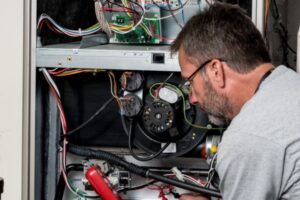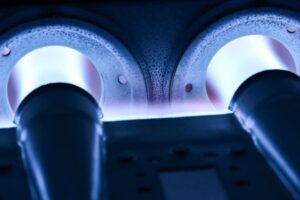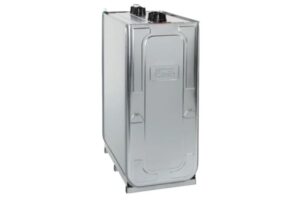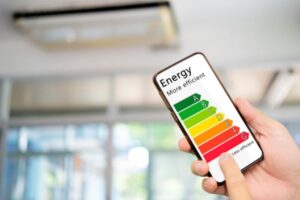Exploring The MERV Rating: The Key to HVAC Filter Efficiency
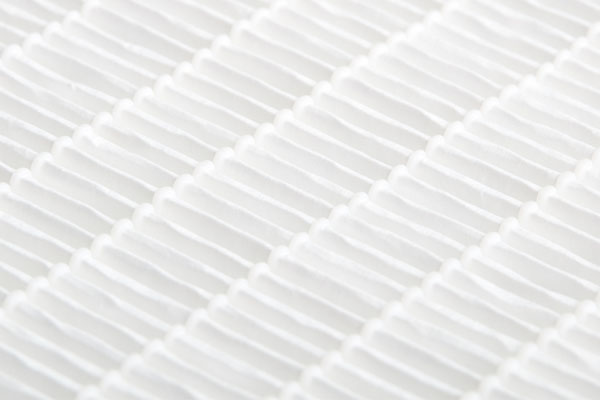
Contents
- 1 Understanding MERV Ratings
- 1.1 How MERV Ratings Work
- 1.2 Determining the MERV Rating
- 1.3 Impact of MERV Ratings on Indoor Air Quality
- 1.4 Effect of HVAC Air Filter on the HVAC System’s Health
- 1.5 Energy Consumption and MERV Ratings
- 1.6 Should I Buy HVAC Filters With High MERV Ratings?
- 1.7 Selecting the Appropriate MERV Rating for Your HVAC Air Filter
- 1.8 Conclusion
- 2 Contact Columbus Energies For Reliable HVAC Services
Unseen pollutants linger in the air in every household. These minute particles, imperceptible to the naked eye, can have substantial adverse effects. For families prioritizing indoor air quality, a critical step is the routine replacement of air filters. While adhering to the manufacturer’s suggested schedule is a good practice, a monthly inspection might reveal the need for more frequent changes. Every home has unique requirements, so it’s crucial to select a filter that fits your HVAC system and addresses your needs. One critical aspect to consider is the filter’s MERV rating, which is essential in determining its suitability for your environment.
This article delves into why understanding the MERV rating is vital when choosing HVAC filters.
Understanding MERV Ratings
Navigating the world of air filters can be daunting, especially for first-timers. Amidst a sea of products all boasting superiority, discerning the right choice requires research and understanding of the specifications. A key term you’ll encounter is “MERV,” an acronym for Minimum Efficiency Reporting Value. This metric is crucial in evaluating an air filter’s proficiency in trapping unwanted particles. Essentially, a higher MERV rating equates to a more efficient filtration capability.
How MERV Ratings Work
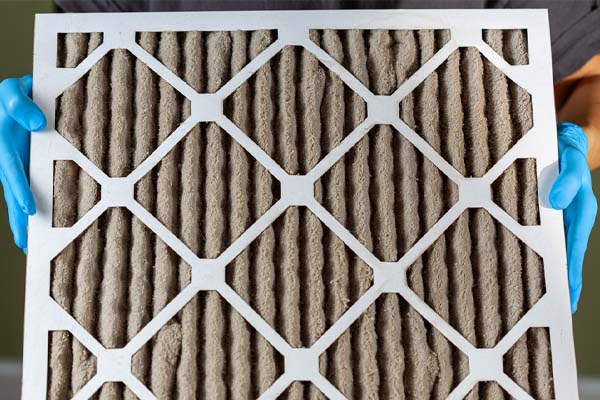
The MERV rating system is a scale that ranges from 1 to 20. While it might seem intuitive to always opt for the highest rating, the ideal MERV rating actually varies based on the application.
In highly sensitive environments like cleanrooms, hospitals, and nuclear facilities, air filters with MERV ratings between 16 to 20 are commonly used due to their superior filtration capabilities. In contrast, most residential settings find filters rated between MERV 5 and 13 to be optimal.
Filters with a rating below MERV 5 generally fail to maintain satisfactory indoor air quality. Using filters with a rating above MERV 13 in typical home HVAC systems can potentially hinder their performance.
Determining the MERV Rating
The assignment of a MERV rating to air filters involves a thorough testing process. This testing is conducted with particles of various sizes, categorized into three distinct ranges:
- E1 category includes particles that are 0.3 to 1.0 microns.
- E2 category encompasses particles ranging from 1.0 to 3.0 microns.
- E3 category covers particles measuring 3.0 to 10 microns.
Particles involved in MERV rating tests are invisible to the human eye, as we can typically only see objects larger than 40 microns. For context, a human hair is about 50 microns wide. Thanks to advanced laboratory technology, these minuscule particles are detectable. They are sprayed through filters during testing, and their capture rate is carefully measured.
The MERV rating is derived from the filter’s lowest score in these tests, emphasizing its ‘minimum efficiency.’ Therefore, to be rated as MERV 16, a filter must efficiently capture at least 95% of these tiny particles, ensuring its effectiveness in air filtration.
Impact of MERV Ratings on Indoor Air Quality
The air quality within your home is crucial to your family’s health and overall comfort. If allergies are a common concern, consider upgrading to an HVAC air filter with a higher MERV rating.
Filters with higher MERV scores are more efficient at removing airborne pollutants. This can result in a noticeable decrease in typical allergy symptoms such as fatigue, headaches, eye irritation, rashes, sore throat, sneezing, and runny nose.
Additionally, using a higher-rated filter can safeguard your home against damage caused by dust and bacteria, reduce the frequency of illnesses, and help prevent the spread of contagions. This is particularly important in homes where someone has a compromised immune system, as a high-MERV filter can provide extra protection.
Effect of HVAC Air Filter on the HVAC System’s Health
Each forced-air heating and cooling system has a manufacturer-recommended MERV rating for air filters. Adhering to these recommendations is crucial to avoid potential problems. Low-rated filters, while cheaper, are less effective at trapping pollutants, leading to dust and bacteria accumulation in the ducts, reduced system efficiency, and higher maintenance costs. Conversely, using a filter with a MERV rating higher than recommended can restrict airflow, accelerate system wear, and reduce its lifespan.
Energy Consumption and MERV Ratings
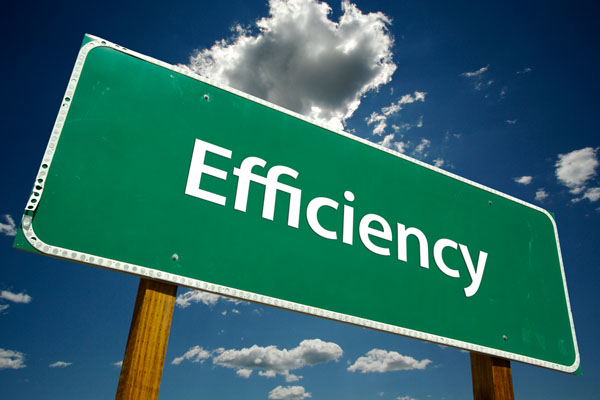
The size of their openings influences the effectiveness of air filters in capturing particles. Smaller openings enhance particle capture but can impede airflow, increasing the HVAC system’s energy use. This is why extremely high MERV ratings, like MERV 20, are generally not recommended for standard homes, as they can significantly increase energy bills and potentially lead to premature breakdowns of HVAC systems without proper adjustments.
For most homes, air filters with MERV ratings between 8 and 13 strike an optimal balance, effectively maintaining air quality without significantly impacting energy bills. Consult an HVAC contractor for guidance on the best filter for your home.
Should I Buy HVAC Filters With High MERV Ratings?
When selecting air filters, it’s natural to assume that higher ratings equate to better performance, as is often the case with product reviews and other rating systems. However, with MERV ratings, higher isn’t always better.
While filters with high MERV ratings are more effective at trapping pet hair, bacteria, and pollen, they can also restrict airflow through your HVAC system. This reduced airflow can lead to decreased indoor comfort, increased energy usage, and higher utility bills. Therefore, it’s essential to prioritize compatibility and choose a filter with a MERV rating that matches your system’s requirements.
Selecting the Appropriate MERV Rating for Your HVAC Air Filter
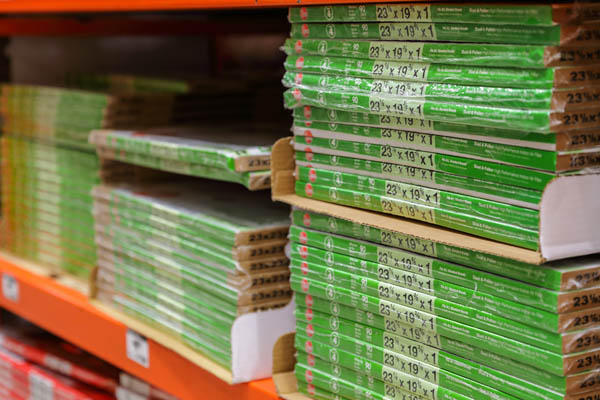
Since each HVAC system is unique, providing one-size-fits-all recommendations for air filters is challenging. It’s best to consult the owner’s manual for specific guidance. Generally, most households function well with filters rated between MERV 8 and 13, effectively removing a significant amount of particles without overburdening the system.
Optimal results over time are achieved when the system and filter are in sync. For homes with fewer occupants and no pets, a MERV 8 filter is typically adequate. In busier households with pets, a MERV 11 filter is more suitable. For environments with individuals having compromised immune systems, a MERV 13 filter is often recommended to ensure better health and air quality.
Conclusion
The MERV rating is an important consideration when choosing air filters. It signifies a filter’s effectiveness against microscopic impurities. Low MERV ratings are typically inadequate for proper air cleaning, while very high ratings might negatively affect certain HVAC systems. Most homes are well-served by filters with MERV ratings between 8 and 13. The optimal choice varies, depending on the specific needs and characteristics of each household.
Contact Columbus Energies For Reliable HVAC Services
Columbus Energies provides premier heating and cooling services in Southeastern Massachusetts and the Rhode Island region. Our professionally certified HVAC technicians excel in HVAC tune-ups, repairs, installations, and replacements, ensuring top-quality service for your system. Each technician at Columbus Energies has extensive knowledge and experience, ensuring your HVAC system receives the best possible care.
We pride ourselves on offering the region’s most competitive prices for heating and cooling services. Our maintenance services are designed to enhance your comfort, boost energy efficiency, and cut down your home heating and cooling expenses. If you’re in need of an HVAC repair or are considering a system replacement, our team can guide you to the ideal solution that fits your home and budget.
At Columbus Energies, we stand behind our work with a solid satisfaction guarantee. For a free, in-home estimate or to schedule your service appointment, don’t hesitate to call Columbus Energies today.
Contact us now by calling (508) 674-1492 to speak to one of our home comfort specialists!

Related Articles:

